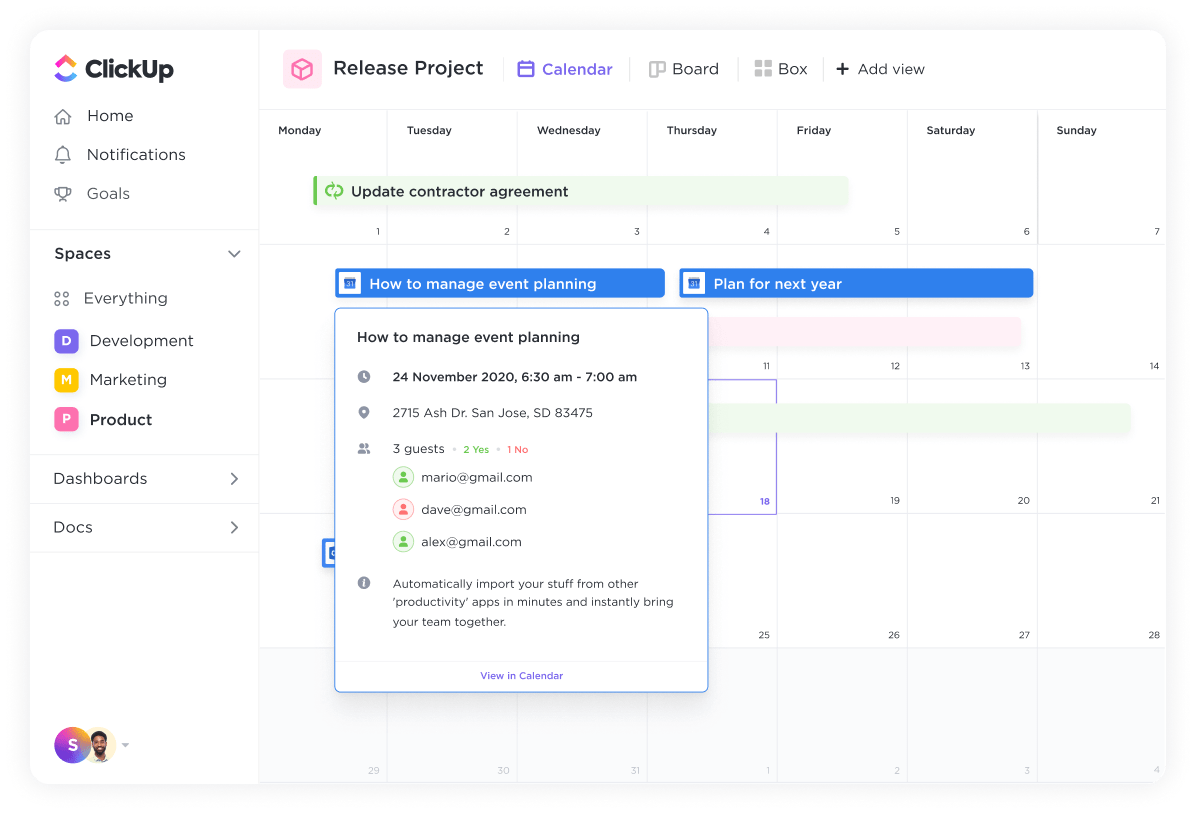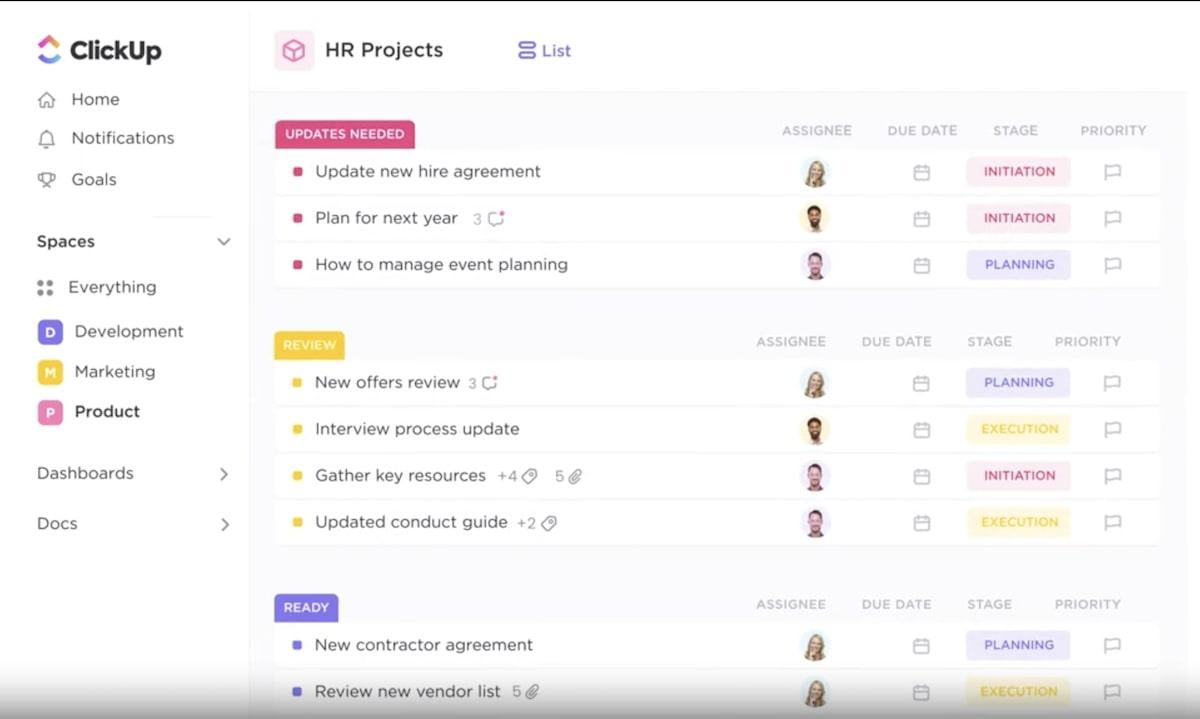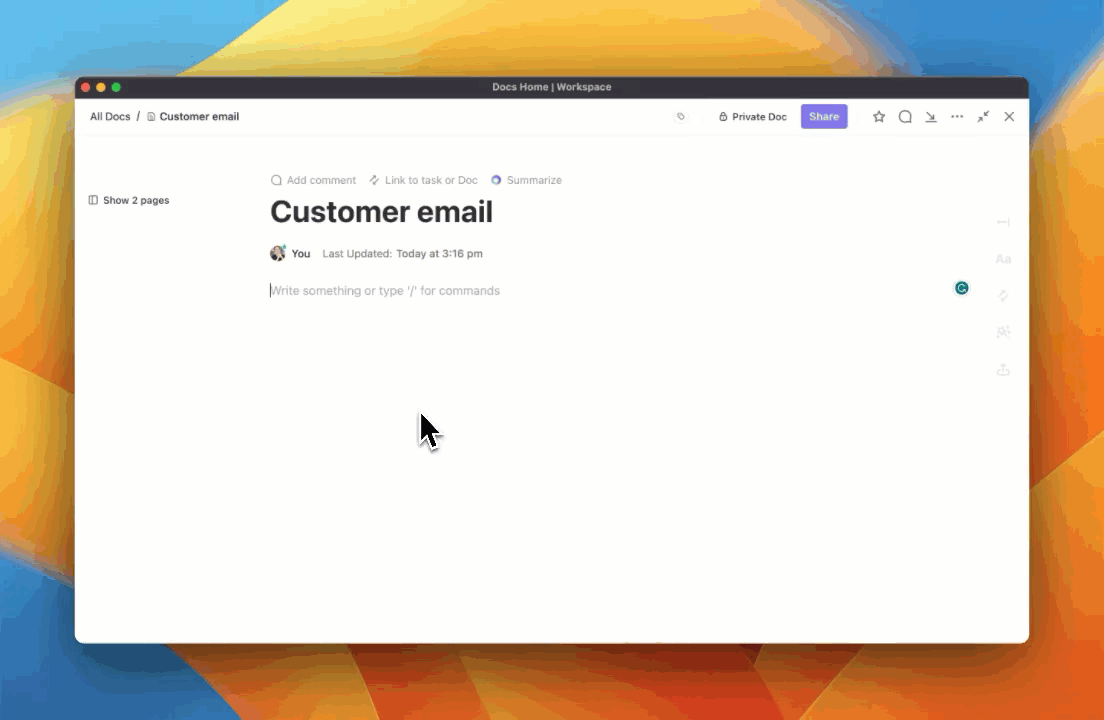

Have you ever wondered what happens behind the scenes in the world of recruitment? Recruiters act as professional matchmakers who put in a lot of hard work to source potential candidates for job vacancies. That requires expertise in scanning CVs, balancing the needs of job seekers and hiring managers, and playing the role of headhunter. Talent acquisition might not be easy, but plenty of recruiters say corporate matchmaking is their dream job, and they wouldn’t have it any other way.
But what, exactly, does a recruiter do? What does their day-to-day life look like?
Whether you’re interested in becoming a recruiter yourself or are just curious about the job, this guide will clear up any misconceptions and show you what recruiters really do. We’ll show you what a recruiter’s work day looks like, the tools they use, and upcoming changes in the staffing industry that could have a big impact on this career.
- What Is a Recruiter?
- A Day in the Life of a Recruiter
- Different Perspectives on a Recruiter’s Job
- Tasks That Make Recruiters Essential
- Tools and Techniques Used by Recruiters for Daily Tasks
- 1. Use an HR and recruitment tool like ClickUp
- 2. Network on LinkedIn
- 3. Use an applicant tracking system – ATS
- 4. Check job boards and career websites
- 5. Don’t forget about other social media platforms
- 6. Use AI-powered candidate screening
- 7. Try video interviews
- 8. Check recruitment analytics
- 9. Attend professional networking events
- 10. Set up an employee referral program
- The Future of Recruitment
What Is a Recruiter?
A recruiter acts as the bridge between job seekers and businesses, helping companies fill open positions with the perfect candidates. While the ultimate goal of an HR recruiter is to fill vacancies, they do so much more.
At their core, recruiters are connectors. They balance the expectations of both hiring managers and candidates, which requires understanding:
- The job description
- Required skill sets
- Cultural fit
- How to post attention-grabbing job postings
Spotting the right resume is a good start, but successful recruiters know how to search for the right candidates who will thrive—and stay—in their new roles. 🤝
Today, recruiters use social media platforms like LinkedIn for candidate sourcing. Since they’re always on the lookout for top talent, this makes recruiters similar to headhunters. But a good recruiter doesn’t just fill positions. They stay involved in the entire hiring process. They advise companies on market trends, salary benchmarks, and talent acquisition strategies.
They also play a crucial role in ensuring a smooth recruitment process, which includes maintaining a positive experience for all candidates, regardless of the outcome.
A Day in the Life of a Recruiter
A recruiter’s typical day involves a lot of hard work, whether they’re a tech recruiter specializing in finding IT professionals, an executive recruiter focused on senior leadership roles, or a generalist handling various roles. From scheduling interviews to coordinating team meetings, from catching up with candidates to providing feedback, a recruiter’s workday is diverse and demanding. Here’s a quick snapshot of a day in the life of a recruiter.
Morning routine
A corporate recruiter’s workday usually starts with communication. The first order of business is usually checking emails and voicemails to:
- Catch up with hiring managers
- Get feedback on candidate interviews
- Sift through potential candidate responses
Since most people job hunt while they’re still employed, it isn’t unusual for new applications to come in overnight. Early-morning emails and calls set the tone for the day, helping the recruiter prioritize tasks and schedule their day more effectively.
Daily tasks

After their coffee kicks in, recruiters turn their focus to candidate engagement. This involves various tasks, including:
- Scheduling interviews
- Screening candidates through phone calls or video chats
- Following up on interviews
- Serving as a recruitment consultant
But that’s just one side of the coin. As important as it is for recruiters to engage with candidates, they also have to stay in touch with employers’ needs. Recruiters spend a good part of their day communicating with hiring managers to understand the needs for each open position, fine-tune job descriptions, and chat about candidates’ cultural fit and skills.
Most folks hunt for jobs online, so recruiters spend a lot of time on job boards and sites like LinkedIn. They post job openings and proactively search for candidates who would be a good fit for the roles they’re hiring for.
Conclusion of the day
As the day winds down, recruiters shift to wrapping up their day. This usually includes tasks like:
- Updating recruitment tracking systems
- Responding to less complex emails or quick questions
- Setting up tasks for the next day
Most recruiters work solo, but they’re still part of a team. The relative quiet at the end of the day is an opportunity to catch up with their recruitment team to check in, discuss challenges, and plan team meetings.
Different Perspectives on a Recruiter’s Job
Recruiters are perceived differently depending on who you talk to. Recruiting is a multifaceted job, so it isn’t surprising that people make assumptions about this career. Let’s dig into what different people might think about your job as a recruiter.
View of parents, friends, and acquaintances
Your friends and family might not be very familiar with the recruitment industry, so to them, a recruiting job sounds like a mix of HR and sales. They often perceive this role as primarily focused on hiring and interviewing candidates—and that’s not that far off base, actually.
There’s a general understanding that recruiters work with job seekers and help them find a job, but your family might not understand just how much work really goes into sourcing and headhunting. 👀
How clients perceive recruiters
Hiring managers and corporate leaders usually hire recruiting consultants or internal recruiters to fill their open positions. They view recruiters as vital partners who not only fill open positions but also:
- Offer job market insights
- Advise on the recruitment process
- Understand the complexities of hiring for technical skill sets
Clients are usually busy with their own work, so they rely on recruiters to source the right candidates and manage the hiring process.
A recruiter’s self-perception versus their actual tasks
Recruiters have a more nuanced understanding of their role. Most see themselves as career matchmakers, talent advisors, and industry specialists. They know their job goes beyond just filling vacancies; they create meaningful connections, shape careers, and influence company growth. 🏢
However, it’s important to note that a recruiter’s actual tasks don’t always line up with their self-perception. Maybe you aspire to be a strategic partner who’s calling the shots, but you spend your day on administrative tasks like scheduling interviews or handling paperwork. The challenge for recruiters is to find a way to balance these administrative to-dos with the more strategic parts of their role.
Tasks That Make Recruiters Essential
Some hiring managers initially scoff at the idea of hiring a recruiter, but these folks fulfill so many essential tasks. Hiring managers usually don’t have the capacity or experience to manage the hiring process, but this is a recruiter’s bread and butter. Recruiters are essential for so many reasons.
Candidate and data management

Recruiters know how to source candidates. This involves more than just looking at who’s available; it’s about finding the best match for the job and the company culture. Recruiters use a variety of tools and techniques to identify potential candidates, from LinkedIn searches and networking to tapping into existing talent pools. 🔍
But they don’t write down candidates’ information on sticky notes. Experienced recruiters use tools like ClickUp to create a well-maintained candidate database. This makes it a cinch to reach out to potential candidates, track their progress through the recruitment process, and maintain a talent pipeline for future vacancies. A database is perfect for keeping records, but it’s also a must-have for making informed, strategic matches that work well for both the client and the candidate.
Regular communication
Recruiters bridge the gap by staying in constant communication with hiring managers and candidates. It isn’t unusual for jobs to receive over 100 applicants these days, so recruiters certainly have their work cut out for them.
Fielding calls from candidates takes a lot of time, but recruiters also stay in touch with their clients. This involves not only updating them on the progress of current recruitment campaigns but also advising them on market trends and salary benchmarks for each role. Recruiters act as a liaison between the organization and the job market, providing valuable insights that can shape hiring decisions and workforce planning.
Candidate engagement
Candidates have just as much power in the hiring process as the company does. Good recruiters know that their job is about more than filling as many jobs as possible, but building relationships based on understanding. It’s the recruiter’s job to get candidates excited about the opportunity and make a good impression.
Tools and Techniques Used by Recruiters for Daily Tasks
Recruitment is a people-first job, but technology definitely simplifies things. Recruiters use these tools and techniques to stay on top of trends, chat with clients and candidates, and create thoughtful matches.
1. Use an HR and recruitment tool like ClickUp

Modern recruitment just isn’t efficient with the right software. That’s why HR teams rely on ClickUp to manage everything from hiring to onboarding to retention. 🤩
Not to toot our own horn, but our recruitment and HR templates are pretty helpful. Use the ClickUp Recruitment Action Plan template to get recruiters and hiring managers on the same page for every open position.
But ClickUp is for way more than just hiring—you can use the same platform once a candidate becomes an employee. For example, you can copy the ClickUp HR Handbook template to create standards for employee behavior and performance.
2. Network on LinkedIn
LinkedIn might seem overplayed, but it’s still the best way for recruiters to get in touch with candidates. It’s perfect for networking, sourcing applicants, and advertising job openings. It also makes it a breeze to quickly message lots of potential candidates at once.
3. Use an applicant tracking system – ATS
Applicant tracking systems manage the recruitment process from start to finish. Systems like ClickUp track applications, organize candidate information, and streamline communications. An ATS can even filter applications based on certain criteria, like education or experience, to save time.
4. Check job boards and career websites
Recruiters frequently use job boards and career websites to post vacancies and reach a wider audience. Post on both generic websites and more industry-specific sites to expand your reach.
5. Don’t forget about other social media platforms
LinkedIn is the standard social network for all things work-related, but it isn’t the only place to find candidates. It isn’t unheard of for recruiters to use platforms like Facebook, Instagram, X (formerly Twitter), and even TikTok. These platforms actually give you insight into the candidate’s personality, interests, and cultural fit beyond what you can see on a resume.
6. Use AI-powered candidate screening

Look, recruiting can be a time-consuming process. AI-powered screening tools help recruiters cull the number of candidates in the early stages of the hiring process, saving you hours of manual effort. These tools use algorithms to assess which candidates are the most suitable, funneling the most promising candidates to you in record time. Of course, it’s still up to the recruiter to double-check the AI’s decisions, but this tool will still save a lot of time.
7. Try video interviews
Video interviewing platforms are essential for remote hiring. But they’re helpful even if you’re hiring someone in town, especially if you have a multi-stage interview process or a hiring manager in another location. Video interviews mimic the face-to-face interactions of an in-person review but save everyone the hassle of a commute.
8. Check recruitment analytics
How well are your recruitment efforts working? You won’t know unless you check your performance. Recruitment analytics and reporting tools provide objective, data-driven insights into your recruitment processes. You’ll see helpful metrics on time-to-hire, cost-per-hire, and the effectiveness of your sourcing channels. Check this data at least once a month to get helpful insights that improve your recruitment efforts.
9. Attend professional networking events
Social media and job boards are great, but nothing works quite as well as meeting candidates in person. Recruiters regularly attend in-person events to connect with potential candidates and build a talent pipeline. Even if the candidates aren’t currently looking for a job, you never know where a friendly connection will take you in the future. Put yourself out there, and your pipeline will grow in no time. 🙌
10. Set up an employee referral program
Employee referrals are a smart way to leverage your existing workforce to identify promising candidates. These programs usually result in higher-quality hires since current employees already understand the company culture. Plus, the leads come to you, so you get to save time and improve the quality of the talent pool—it’s a win-win!
The Future of Recruitment
Nothing stays the same forever, and that’s true of the recruitment industry. We expect several trends to reshape recruitment in the future, including:
- AI: The use of AI streamlines candidate sourcing, screening, and even initial interviews. However, there’s the potential for bias with AI algorithms, so recruiters still need to keep a close eye on this technology
- Remote hiring: Remote work has exploded in popularity in recent years, so more recruiters will handle remote hiring processes. From virtual interviews to digital onboarding, recruiters will need to master the art of effectively assessing candidates in a remote setting
- Equity and belonging: Companies are rightfully putting more of an emphasis on diversity and inclusion in hiring. Recruiters need to stay on top of the latest laws and best practices for DEIB recruitment strategies
Breeze Through Recruitment with ClickUp
Worker preferences, technology, and shifting markets will affect the future of recruiting. While technology can handle a lot of the heavy lifting, recruiters will always be an essential human element in the hiring process, bridging the gap between hiring managers and candidates.
Whether it’s leveraging cutting-edge tools like ClickUp to streamline the hiring process or adapting to the latest trends in the recruitment industry, a career in recruiting promises growth, impact, and continuous learning.
Of course, the right tools make all the difference. ClickUp’s customizable templates, databases, and recruitment reports help recruiters excel in their roles. See the ClickUp difference firsthand: Create your recruitment Workspace now for free.



